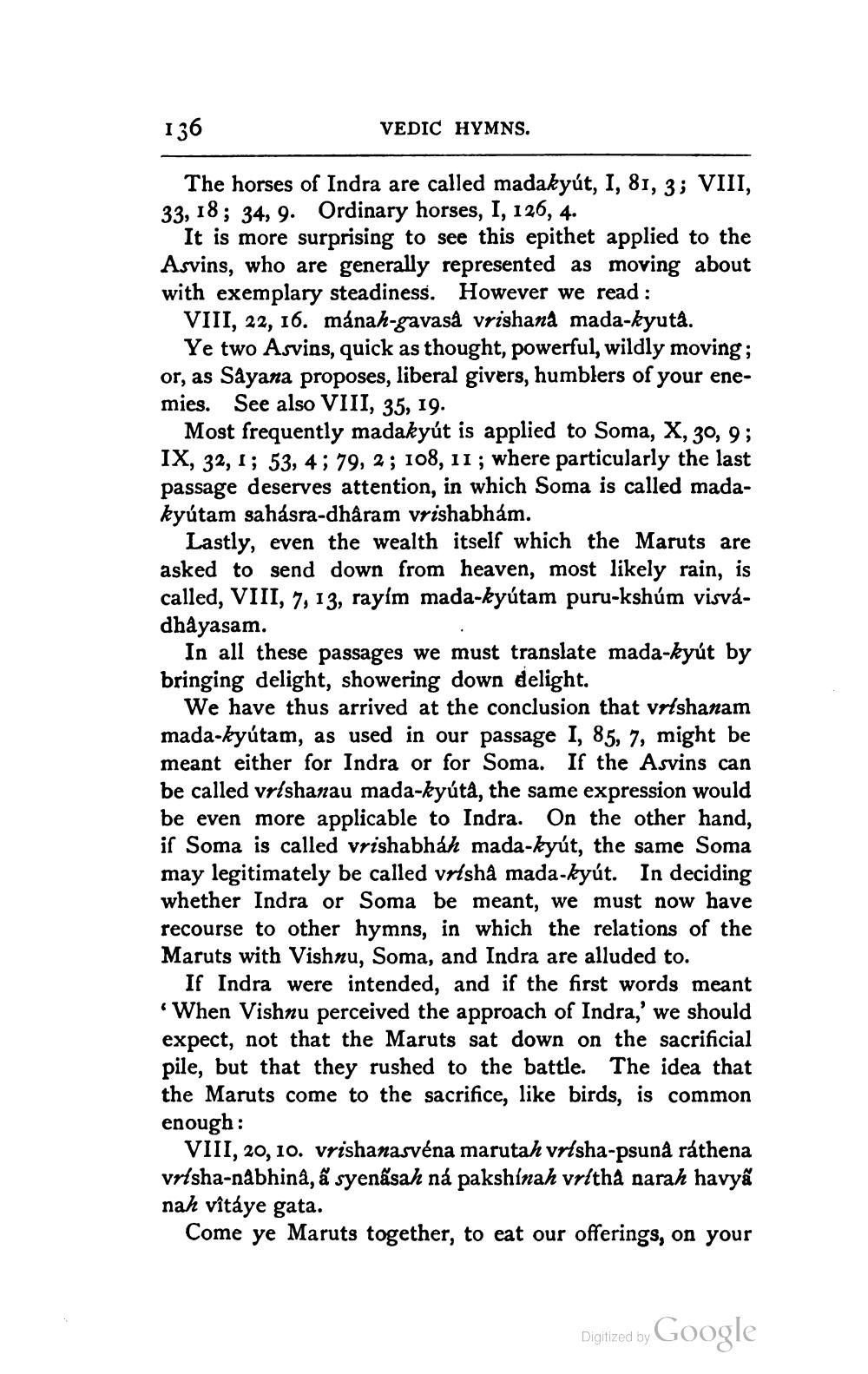________________
136
VEDIC HYMNS.
The horses of Indra are called madakyút, I, 81, 3; VIII, 33, 18; 34, 9. Ordinary horses, I, 126, 4.
It is more surprising to see this epithet applied to the Asvins, who are generally represented as moving about with exemplary steadiness. However we read:
VIII, 22, 16. mánah-gavasà vrishana mada-kyuta.
Ye two Asvins, quick as thought, powerful, wildly moving; or, as Sayana proposes, liberal givers, humblers of your enemies. See also VIII, 35, 19.
Most frequently madakyút is applied to Soma, X, 30, 9; IX, 32, 1; 53, 4; 79, 2; 108, 11; where particularly the last passage deserves attention, in which Soma is called madakyútam sahásra-dhâram vrishabhám.
Lastly, even the wealth itself which the Maruts are asked to send down from heaven, most likely rain, is called, VIII, 7, 13, rayim mada-kyútam puru-kshúm visvádhayasam.
In all these passages we must translate mada-kyút by bringing delight, showering down delight.
We have thus arrived at the conclusion that vrlshanam mada-kyútam, as used in our passage I, 85, 7, might be meant either for Indra or for Soma. If the Asvins can be called vrlshanau mada-kyútà, the same expression would be even more applicable to Indra. On the other hand, if Soma is called vrishabháh mada-kyút, the same Soma may legitimately be called vrlshå mada-kyút. In deciding whether Indra or Soma be meant, we must now have recourse to other hymns, in which the relations of the Maruts with Vishnu, Soma, and Indra are alluded to.
If Indra were intended, and if the first words meant "When Vishnu perceived the approach of Indra,' we should expect, not that the Maruts sat down on the sacrificial pile, but that they rushed to the battle. The idea that the Maruts come to the sacrifice, like birds, is common enough:
VIII, 20, 10. vrishanasvéna marutah vrlsha-psunà ráthena vrisha-nabhina, ã syenāsah na pakshinah vrltha narah havya nah vitaye gata.
Come ye Maruts together, to eat our offerings, on your
Digitized by
Digized by Google




